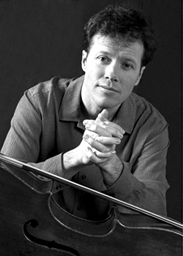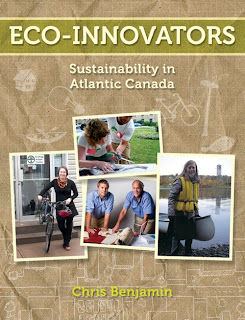sudddenlyListen!
 In Halifax tonight, suddenlyListen Music presents “The Sum of Its Parts,” featuring off the cuff music from two duos: Norm Adams (cello) & Tim Crofts (piano) and Rob Power (percussion) & Paul Bendzsa (woodwinds). Adams is the Founder of sL which organizes improvised music concerts and bi-weekly workshops open to anyone. Arts East recently spoke to Adams about tonight’s concert and his double life: as principal cellist for Symphony NS and as Artistic Director of an organization with no musical restraints.
In Halifax tonight, suddenlyListen Music presents “The Sum of Its Parts,” featuring off the cuff music from two duos: Norm Adams (cello) & Tim Crofts (piano) and Rob Power (percussion) & Paul Bendzsa (woodwinds). Adams is the Founder of sL which organizes improvised music concerts and bi-weekly workshops open to anyone. Arts East recently spoke to Adams about tonight’s concert and his double life: as principal cellist for Symphony NS and as Artistic Director of an organization with no musical restraints.AE: Do you still take comfort in a structured musical environment?
NA: I don’t take comfort in it, but I do value it. I mean first of all, there’s some great music we get to play that speaks to me and speaks to many people. Classical music requires that we play a note in a certain manner and it’s very clear what that manner is. So we develop a great control over our instruments and a great ear for different sounds. Whereas, in improvised music, we are expected to have this broad palette of sounds without anyone telling us that’s what we have. The more I can work on these specifics, the more it broadens my palette of sounds for improvised music. Being only an improviser wouldn’t make me a better classical cello player, but being a classical cello player makes me a better improviser. Some aspects of improvisation makes me a better classical player - I listen better and can find freedom within restraint more than some people. Also [classical music] pays me money. For me to live in Halifax and be a full time musician, it would be hard without the orchestra. I have thought about being a freaky music person, but I have not yet taken that plunge. AE: Can anyone just show up to sL workshops with instruments?
NA: Yes … or with no instruments! The wonderful thing about improvised music is that a professional musician can play with a beginner. If that quality of listening and cooperation is there, free music can happen! You don’t have to be technically adept to make music. You get these people that share maybe nothing more in common than a sense of curiosity and adventure, and then they can have something really deep in common by making music together. You can bring in people from India and from a rock band and from a string quartet and they come together and they can make music. And if they’re listening, something beautiful will happen. AE: What instruments have been incorporated?
NA: Darcy Spidle just brought in a jaw harp…There are guitars, percussion, saxophones and electronic sounds. One person uses plastics with microphones and makes sounds with them or manipulates them without electronics. And people will make sounds with their voices. So, there’s a whole broad range. AE: What’s in store for the February 26th performance?
NA: Tim and I and another duo from Newfoundland are playing. This duo [Rob Power and Paul Bendzsa] is quite wonderful because they get together on a regular basis. When they play, they record each time and then they listen to it. I find that very interesting: you don’t often see that kind of discipline applied to improvised music. What better way to learn about what you’re doing? Tim and I have played together for years in various combinations. Plus we’ve co-led this workshop together, so we share a deep understanding of each other’s music. So, I’m really anxious to see what happens when these two tight units join together and mash up.AE: Are you more passionate about music since you began to improvise?
NA: Yes. I don’t feel the same kind of pressure or fear. When you play in a professional orchestra, you’re expected to play all the notes correctly, be completely prepared; you’re expected to be on the ball every second of every rehearsal. And then you play for 1,000 people and you do NOT want to play a B flat where there’s supposed to be a B natural. For me playing an improvised music concert, I still might be nervous a little bit, but the way I come back from those feelings is thinking “I’m just going to be myself”. For me it’s a physical feeling of my insides relaxing, my ears opening up and beginning. And once you’ve begun, the music has its own path it follows and you just follow along. For me it’s almost a visual experience, or a physical sensation. When it comes together, it’s pretty wonderful. Just being present is the ultimate mindset. And when we’re truly listening, we’re in the moment. The Sum of Its Parts ♪ TONIGHT 8PM ♪ Church of Saint David (1544 Grafton St.) ♪
Improv Workshops ♪ Every 2nd Monday 7:30 PM (next March 5th) ♪ 1313 Hollis St. ♪http://www.suddenlylisten.com

